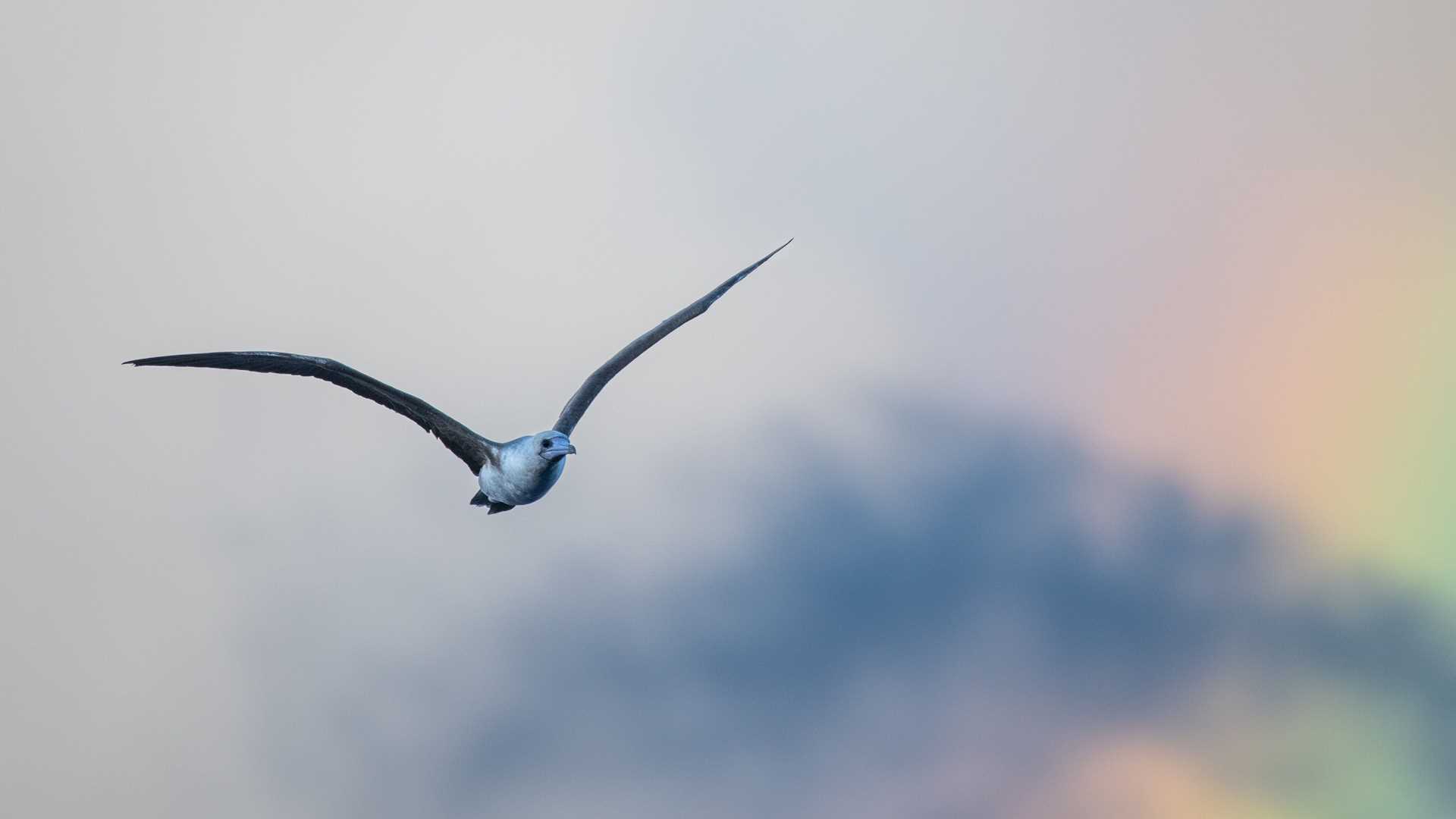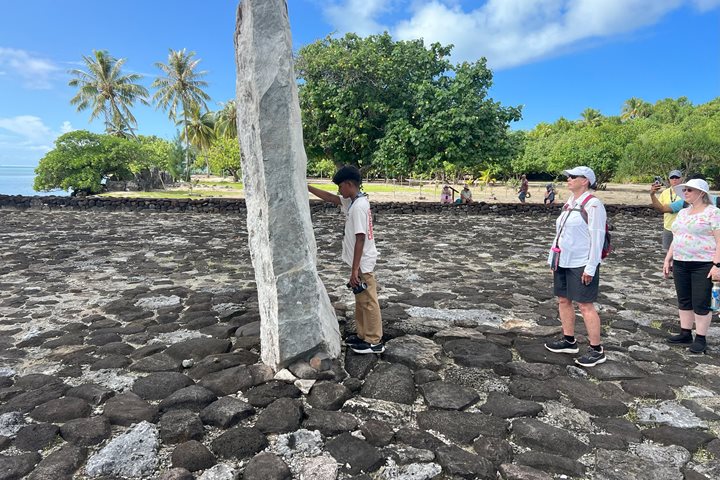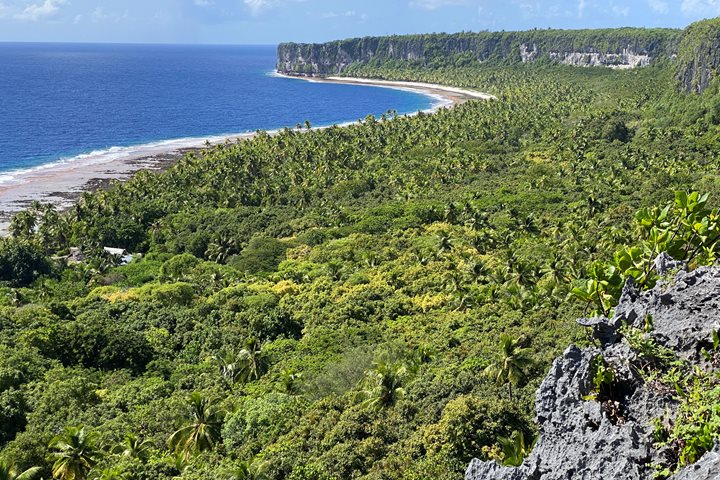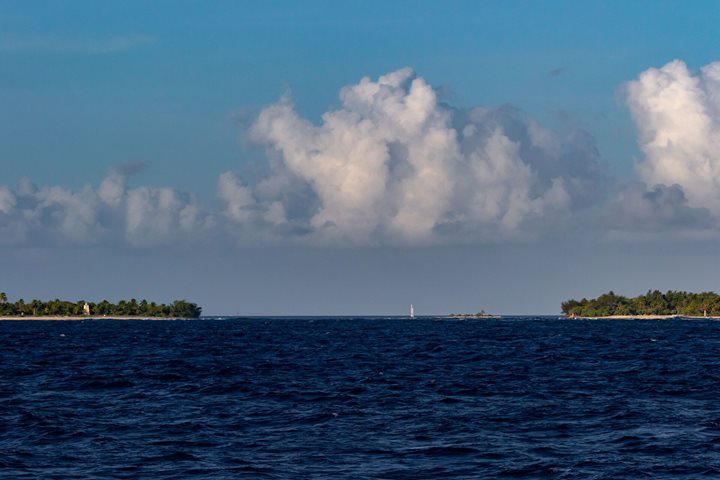After cruising from beautiful Pukarua Atoll and our last snorkeling day, National Geographic Orion arrived early morning to see the sunrise and a beautiful rainbow over the Acteon Atoll. A white sandy beach, hundreds of coconut palms, and a fringing reef with strong, breaking surf made for the best “screensaver” during breakfast.
Traveling through this part of the world requires an expedition mindset because what is planned is not necessarily what will happen. The scouting team went out for over an hour but did not find any good landing possibilities. Nonetheless, we enjoyed watching many seabirds flying very close to the ship.
We observed brown boobies in their juvenile and adult plumages and red-footed boobies darting down into the deep blue to pursue fish as deep as 40 feet. And, of course, we spotted the masters of piracy in the sky, the frigatebirds. Frigates got their name from the French boats that chased after the Spanish galleons back in the day. Frigates can fish for their own meals but about 30% of their daily diet comes from stealing food from other seabirds, especially from boobies.
Frigates are so light that their feathers are heavier than their hollow bones. They glide effortlessly with a five- to seven-foot wingspan. They watch over other birds and pursue them midair or bother them until the birds drop their catch, which the frigates catch midair. It is truly a magnificent game to enjoy from the comfort of the outer decks as we travel to our next destination, Mangareva Island.







